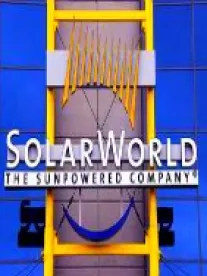Congress created the United States International Trade Commission (“ITC”) as an independent quasi-judicial federal agency with broad investigative powers in matters of international trade. Broadly, the ITC seeks to ensure that United States domestic industries are not injured through unfair trade tactics engaged in by foreign competitors who export their goods into the United States. Among the ITC’s responsibilities are conducting anti-dumping and countervailing duty investigations under the Tariff Act of 1930, conducting investigations into imports that compete unfairly because they infringe intellectual property rights, including patents, copyrights, and trademarks. The ITC’s responsibilities in both of these areas are likely to impact efforts to establish renewable energy industries in the U.S.
On October 19, 2011, SolarWorld Industries America Inc., a manufacturer of solar photovoltaic (PV) cells, requested that the ITC conduct an investigation under sections 701 and 731 of the Tariff Act of 1930. SolarWorld alleged crystalline silicon photovoltaic cells from the People's Republic of China were being imported at prices below their actual cost because of Chinese subsidies. SolarWorld is joined by six other PV panel companies which have asked the ITC to impose duties on more than $1 billion of Chinese imports.
Anti-dumping and countervailing duty investigations under the Tariff Act of 1930 involve both the U.S. Department of Commerce (“Commerce”) and the ITC. Commerce will determine whether the dumping or subsidizing exists, and, if so, the margin of dumping or amount of the subsidy. The ITC, at the same time, determines whether the dumped or subsidized imports materially injure or threaten to materially injure the domestic industry. If Commerce finds dumping and subsidization exists, and the ITC finds a material injury or threat to the domestic industry, then Commerce will issue an antidumping duty order to address dumping or a countervailing duty order to address subsidies.
SolarWorld’s complaint has already garnered a fair amount of attention in the trade press. Some perceive a bit of the pot calling the kettle black in view of U.S. subsidies to our own PV industry. Such comments go to the merits of the complaint, which ultimately will be determined by the ITC’s fact finding process.
The larger point here is that the legal mechanisms available through the ITC will likely serve as an important competitive tool as international trade in new energy technologies grows. This competitive tool should be considered not only to address dumping and subsidies, but to address violations of intellectual property rights under section 337.
According to the ITC’s FY2010 Annual Report, filings of petitions under Title VII alleging dumping or unfair subsidies decrease, with five petitions filed. Investigations of unfair competition under section 337 for intellectual property rights violations, however, increased, with 51 investigations initiated in response to new complaints. All but four involved patent rights. Section 337 adjudications typically are determined more quickly than infringement actions in most courts, a bit over a year, and are subject to appellate review as well as a brief period of presidential review. Success, however, can result in the U.S. customs excluding all of the infringing goods subject to the investigation or, in certain circumstances, even goods that were not part of the investigation.
The filing by SolarWorld may be a harbinger of things to come, but expect more complaints to be filed to protect intellectual property. Approximately half of the ITC's 337 investigations active during FY2010 year involved electronic technologies. While we can only hope that growth in the renewable energy field will explode as has electronics and telecommunications, innovation is rapidly occurring in this field, and protecting successful technologies against foreign knock-offs will be important to sustaining the competitiveness of the U.S. renewable energy industry. The ITC should be kept in mind not only to address dumping and foreign subsidies, but to address other forms of unfair foreign competition and especially patent infringement.



 />i
/>i
